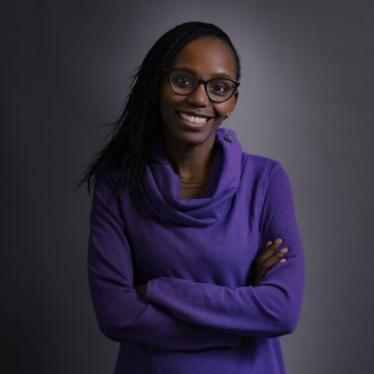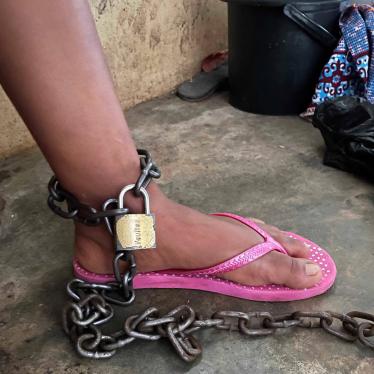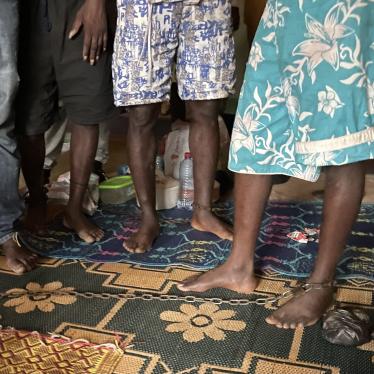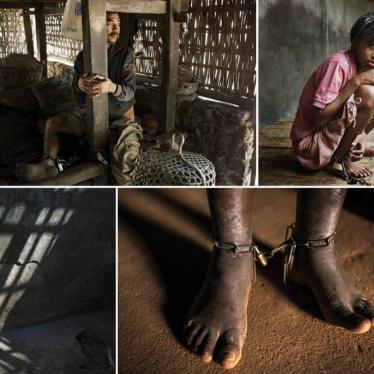I first met Pamela (not her real name) in a spiritual healing center, known as a “prayer camp,” during my first visit to Ghana in November 2022. She was locked up in what looked like a prison cell, where she had been for more than a year on the basis of her real or perceived mental health condition.
When I went back this month, she was locked in the same room, looking out through the same iron bars on the window. The room was bare. There were puddles of urine on the floor. I asked where she slept. “On the floor,” a staff member said. “When you give her a mattress, she destroys it.”
Pamela was just as I last saw her, only emaciated, her eyes enormous on her gaunt face. When I asked her about life at the camp, her face crumpled, and she started to cry. “They don’t allow us to go to church,” she said. “That pains me. I want to go to church.” I was astounded: this was a prayer camp after all. A staff member told her: “But look at you, Pamela. How can I allow you to go to church?” I looked at her again and saw the feces smeared in her hair, her hands sticky with it.
When I left, Pamela waved goodbye from her cell bars.
Pamela shouldn’t be confined in such inhumane conditions, excluded from quality care and the activities of the prayer camp where she is detained, her life frozen in time.
Pamela needs the Ghanaian government to recognize her inherent worth in practice, not just under law. It should provide her with support options to have a meaningful life in the community. Prayer can be part of it, but Pamela also needs other supports: housing options, nourishing food, clean water, and a cozy bed. She needs quality, consent-based mental health services in her community and, should she want it, access to quality medication. To make a living, she needs a job and social security. Finally, Pamela and Ghanaians like her need their government to monitor and hold prayer camps accountable for human rights abuses.
What might her path back to belonging look like? Gaining the acceptance of her family and childhood friends is invaluable. The Ghanaian government should facilitate this by educating her community on mental health issues to help fight stigma. That way, Pamela too can feel she belongs.
** This article is part of a series marking the 10th anniversary of Human Rights Watch's Disability Rights Division.











